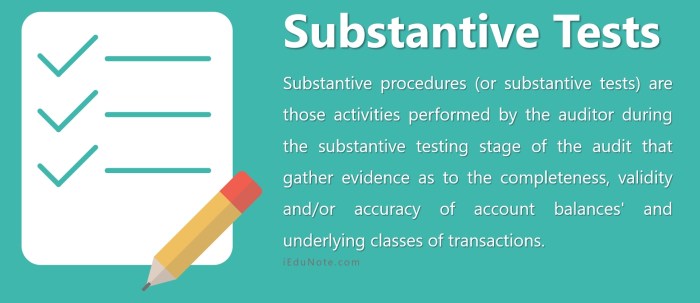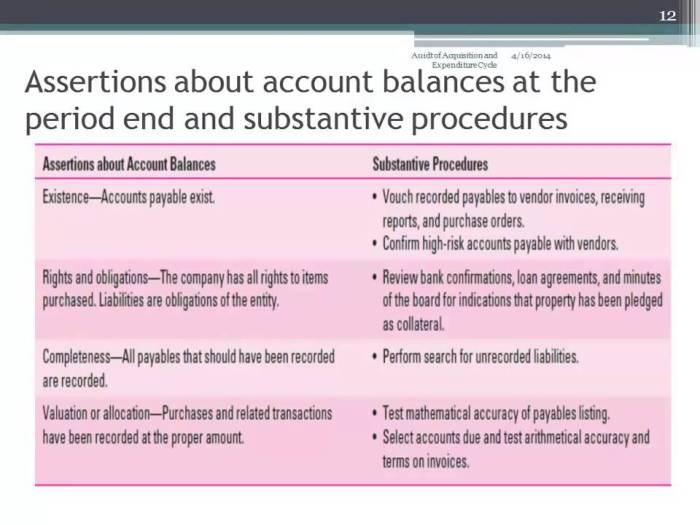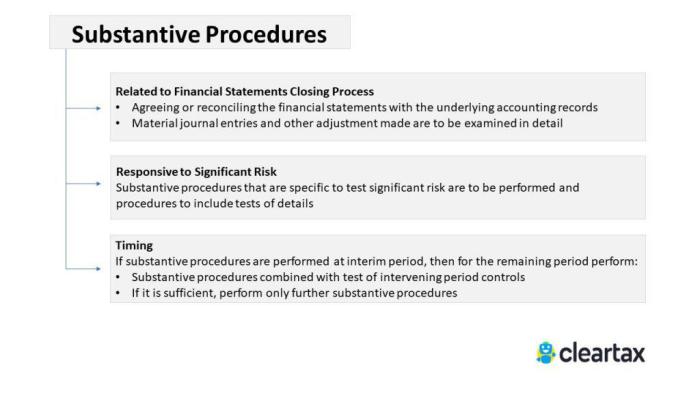Ordinarily what source of evidence should least affect audit conclusions – Ordinarily, internal evidence should least affect audit conclusions because it is generally less reliable than external evidence. Internal evidence is generated within the entity and may be biased or inaccurate, while external evidence is obtained from independent sources and is therefore more likely to be reliable.
Internal evidence includes documents such as accounting records, financial statements, and management representations. External evidence includes documents such as bank statements, invoices, and contracts.
Internal Evidence

Internal evidence is information generated within an entity that supports the existence and accuracy of transactions and account balances. It is less reliable than external evidence because it is subject to manipulation and bias.
Examples of Internal Evidence Sources
- Accounting records (e.g., journals, ledgers, trial balances)
- Supporting documentation (e.g., invoices, purchase orders, bank statements)
- Management’s representations (e.g., letters of representation, financial statements)
External Evidence: Ordinarily What Source Of Evidence Should Least Affect Audit Conclusions

External evidence is information generated outside an entity that supports the existence and accuracy of transactions and account balances. It is generally more reliable than internal evidence because it is less likely to be manipulated or biased.
Common Types of External Evidence Sources
- Bank confirmations
- Customer confirmations
- Vendor confirmations
- Appraisal reports
- Legal documents (e.g., contracts, deeds)
Factors that Affect the Reliability of External Evidence
- Independence of the source
- Competence of the source
- Materiality of the information
Hierarchy of Evidence

The hierarchy of evidence is a ranking of the reliability of different types of evidence. It is used to determine the relative weight of different types of evidence in an audit.
| Type of Evidence | Reliability |
|---|---|
| External evidence | High |
| Internal evidence | Low |
The hierarchy of evidence can be used to determine the relative weight of different types of evidence in an audit. For example, an auditor would give more weight to a bank confirmation than to a management representation.
Auditor Judgment

Auditor judgment is the process of evaluating the reliability of evidence and determining its relevance to the audit objectives. It is a critical part of the audit process because it allows auditors to make informed decisions about the sufficiency and appropriateness of the evidence they have gathered.
Role of Auditor Judgment in Evaluating the Reliability of Evidence
- Assess the independence and competence of the source
- Consider the materiality of the information
- Evaluate the consistency of the evidence with other information
Examples of Situations Where Auditor Judgment May Override the Hierarchy of Evidence, Ordinarily what source of evidence should least affect audit conclusions
- When the auditor has concerns about the independence or competence of the source
- When the materiality of the information is high
- When the evidence is inconsistent with other information
FAQ Guide
What is the hierarchy of evidence?
The hierarchy of evidence is a ranking of the reliability of different types of evidence. The most reliable evidence is external evidence, followed by internal evidence, and finally oral evidence.
What factors affect the reliability of external evidence?
The reliability of external evidence is affected by factors such as the independence of the source, the accuracy of the information, and the completeness of the information.
How is auditor judgment used in evaluating the reliability of evidence?
Auditor judgment is used in evaluating the reliability of evidence to override the hierarchy of evidence in certain situations. For example, an auditor may give more weight to internal evidence if they believe that it is more reliable than the external evidence.